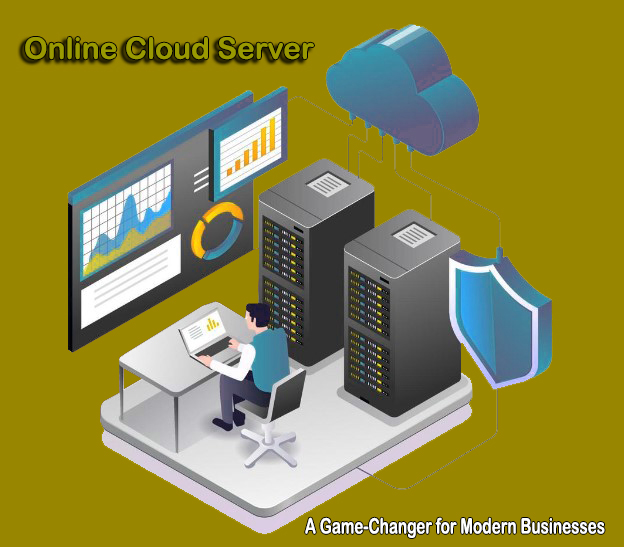Online Cloud Server: A Game-Changer for Modern Businesses
The advent of cloud computing has revolutionized the way businesses operate, providing unprecedented flexibility, scalability, and efficiency. Among the many advancements, the online cloud server stands out as a cornerstone of modern IT infrastructure. This article will explore what an online cloud server is, its benefits, key features, and how it can transform your business operations.
Understanding Online Cloud Servers
An online cloud server is a virtual server that runs on a cloud computing platform. Unlike traditional physical servers, cloud servers are virtualized and hosted in the cloud, offering on-demand access to computing resources like CPU, memory, and storage via the internet. These servers are managed by cloud service providers, which means businesses do not need to invest in or maintain physical hardware.
Key Features of Online Cloud Servers
1. Scalability
One of the most significant advantages of online cloud servers is their ability to scale resources up or down based on demand. This ensures that businesses can handle varying workloads without significant upfront investments in hardware.
2. Flexibility
Cloud servers offer flexible configurations, allowing businesses to select the appropriate combination of CPU, memory, and storage that meets their specific needs. This customization ensures optimal performance and cost-efficiency.
3. Reliability
Cloud servers are designed for high availability and redundancy. They employ mechanisms such as load balancing and failover to ensure that applications and data remain accessible even in the event of hardware failures.
4. Security
Cloud service providers implement advanced security measures, including data encryption, firewalls, and regular security updates, to protect data and applications from threats. These measures ensure that businesses can rely on cloud servers for secure operations.
5. Cost-Efficiency
With a pay-as-you-go pricing model, cloud servers help businesses manage their budgets effectively by only paying for the resources they use. This eliminates the need for significant capital expenditures on physical hardware.
6. Global Reach
Cloud servers can be deployed in data centers around the world, ensuring low latency and high performance for users regardless of their location. This global presence is particularly beneficial for businesses with international operations.
Benefits of Using Online Cloud Servers
Enhanced Performance and Reliability
Cloud servers are built to deliver high performance and reliability. With features like load balancing and automatic failover, businesses can ensure that their applications run smoothly and remain accessible at all times.
Cost Savings
By moving to an online cloud server, businesses can significantly reduce their IT costs. The elimination of physical hardware and maintenance expenses, coupled with the pay-as-you-go model, results in substantial cost savings.
Scalability and Flexibility
Cloud servers offer unmatched scalability, allowing businesses to quickly adjust their resources to meet changing demands. This flexibility is crucial for businesses experiencing rapid growth or seasonal variations in demand.
Improved Security
Cloud service providers implement robust security protocols to safeguard data and applications. This includes encryption, multi-factor authentication, and regular security audits, ensuring that businesses can operate securely.
Accessibility and Collaboration
Online cloud servers enable remote access to applications and data, enhancing collaboration among team members. Employees can work from anywhere with an internet connection, facilitating a more flexible and productive work environment.
Disaster Recovery and Backup
Cloud servers provide reliable disaster recovery and backup solutions. Automated backups and geographically distributed data centers ensure business continuity in the event of data loss or system failures.
How to Choose the Right Online Cloud Server for Your Business
Assess Your Business Needs
Start by evaluating your business requirements and objectives. Determine the types of applications you will run, the amount of data you need to store, and the performance and availability levels required.
Evaluate Service Provider Reputation
Choose a reputable cloud service provider with a proven track record of reliability, performance, and security. Read reviews, check customer testimonials, and assess the provider’s service level agreements (SLAs).
Consider Scalability Options
Ensure that the cloud server offers scalable solutions that can grow with your business. Look for providers that offer flexible resource allocation and the ability to scale resources up or down as needed.
Review Security Features
Evaluate the security measures implemented by the cloud service provider. Ensure they offer data encryption, multi-factor authentication, regular security updates, and compliance with industry standards.
Analyze Cost Structure
Examine the cost structure of different cloud servers. Consider the pay-as-you-go model, subscription plans, and any additional costs for features like data transfer, storage, and support.
Check Customer Support
Opt for a cloud service provider that offers comprehensive customer support. Look for providers that offer 24/7 support, multiple support channels, and a dedicated account manager to assist with your needs.
Popular Cloud Service Providers
Amazon Web Services (AWS)
AWS is a leading cloud service provider known for its extensive range of services and global presence. AWS offers robust security, scalability, and performance, making it suitable for businesses of all sizes.
Microsoft Azure
Azure is a popular choice for businesses already using Microsoft products. It offers seamless integration with other Microsoft services and provides a comprehensive suite of cloud solutions.
Google Cloud Platform (GCP)
GCP is known for its data analytics and machine learning capabilities. It offers a user-friendly interface and competitive pricing, making it a great option for businesses focusing on data-driven applications.
IBM Cloud
IBM Cloud is known for its enterprise-grade solutions and hybrid cloud capabilities. It is a strong contender for businesses looking for robust security and compliance features.
Oracle Cloud
Oracle Cloud is designed for businesses that require high-performance computing and extensive database management. It offers a range of cloud services tailored for enterprise needs.
Real-World Success Stories with Online Cloud Servers
Netflix
Netflix uses AWS to manage its global streaming service, handling massive amounts of data and delivering a seamless viewing experience to millions of users. AWS’s scalability and performance are crucial to Netflix’s success.
Airbnb
Airbnb relies on AWS to power its global platform, ensuring reliable and scalable infrastructure to support its user base. AWS enables Airbnb to efficiently manage its website and mobile applications.
Slack
Slack, a leading collaboration platform, leverages AWS for its infrastructure needs. AWS’s robust and secure environment helps Slack maintain high performance and protect user data.
Conclusion
Online cloud servers have become a game-changer for businesses, offering enhanced performance, scalability, cost-efficiency, and security. By choosing the right cloud server, businesses can unlock new opportunities for growth and innovation. Whether you’re a startup looking to scale quickly or an enterprise seeking to optimize your infrastructure, online cloud servers provide the tools and services you need to succeed in today’s competitive digital landscape.




